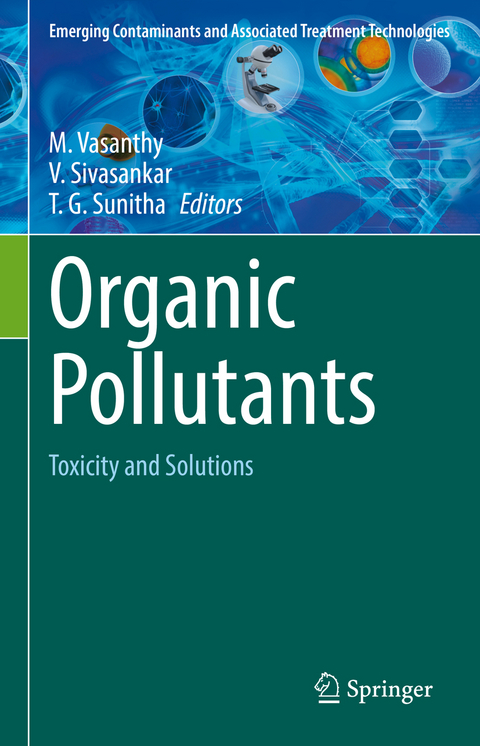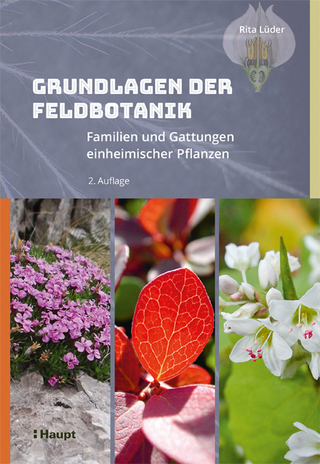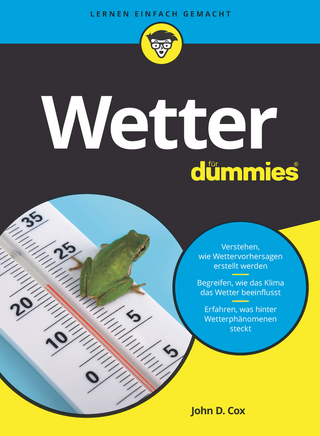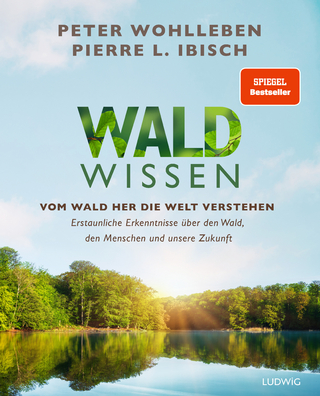
Organic Pollutants
Springer International Publishing (Verlag)
978-3-030-72440-5 (ISBN)
This volume describes the identification of emerging organic pollutants, mainly from industrial sources, their associated toxicological threats, and the latest green methods and biotechnological solutions to abate harmful impacts on people and the environment. The chapters present reviews on current applied toxicology research, occupational health hazards and green remedial solutions for pollution control in terrestrial and aquatic environments, with the aim of raising public awareness of these issues and providing chemists, toxicologists and environmental scientists with the knowledge to combat organic pollutants through sustainable means. Readers will learn about the multi-dimensional applications of materials and processes which harvest energy out of environmental remediation technologies, as well as the roles of biotechnology and nanotechnology in addressing high pollutant load. Specific attention is paid to technologies that draw energy through wastewater remediation, as this covers the primary means by which organic pollutants are introduced into the environment from industry and other sources. The book will be of use to pollution control boards, industry regulators, and students and researchers in the fields of biotechnology, biomedical science, hydrology and water chemistry.
lt;p>Dr. M. Vasanthy is an Associate Professor in the Department of Environmental Biotechnology at Bharathidasan University in Tiruchirappalli, India. She completed her graduation (in chemistry), Post-graduation and Doctorate in Environmental Sciences from Bharathidasan university, Tiruchirappalli. She is credited with 70 research papers in national and International peer - reviewed journals. Also, she has contributed 6 book chapters and has co-authored 4 books. She bagged the Environmental management award in 2012 and UGC Research Award (2015 - 2017). For her credit, she has completed major research projects of UGC, TNSCST, DST and MoEf for about 86.65 lakhs. Her research focuses mainly on Solid waste management, drinking and wastewater treatment.
Dr. V. Sivasankar is an Assistant Professor in the Department of Chemistry at Pachaiyappa's College, India. He received his doctorate in Chemistry in 2009 from Bharathidasan University, Tiruchirappalli, Tamil Nadu, India. He is a JSPS Post-Doctoral Fellow in 2016 from Nagasaki University in Nagasaki, Japan. He has been a faculty member in the Department of Chemistry in Pachaiyappa's College, Chennai, India since 2014. His research areas include materials synthesis and wastewater treatment. To his credit, he has more than 65 research articles in Peer - Reviewed journals and five book chapters in volumes with of renowned publishers. He edited books on Surface Modified Carbons as Scavengers of Fluoride from Water (2016) and Microbial Fuel Cell Technology for Bio-electricity (2018) with Springer. He collaborates and performs research with professors in universities and research laboratories in Algeria, France, Japan, Iran and South Africa.
Dr. T. G. Sunitha is an Assistant Professor in the Department of Chemistry at Pachaiyappa's College, India. She was awarded the doctorate degree in Chemistry in 2009 from Anna University in Chennai, India. She has been working as a faculty with Pachaiyappa's College in Chennai, Tamil Nadu, India. She has more than 20 international publications in the form of journal articles and book chapters into her account.
Chapter 1.- Organic pollutants: Past, present and the future. Chapter 2.- Persistent Organic Pollutants (POPs): Sources and adverse effects to human health and Environment. Chapter 3.- Assessment of POPs in water. Chapter 4.- Monitoring of POPs: A Global Perspective. Chapter 5.- Organochlorines and organophosphates: Bioaccumulation and Toxicity. Chapter 6.- Pharmaceutical pollutants in water: Toxicity and health hazards. Chapter 7.- Textile organic chemicals in water: Pervasive toxicity to humans and aquatic animals. Chapter 8.- Organic toxins in cosmetic products: Quantification and risk evaluation. Chapter 9.- Disinfectant products: toxicity and health hazards. Chapter 10.- Obesogens and obesity: Challenges and prospects. Chapter 11.- Pheromones: A Potential alternative to organic recalcitrant compounds. Chapter 12.- Microplastics as carriers of organic pollutants: An overview. Chapter 13.- Removal of POPs through degradation mechanisms by possible technologies. Chapter 14.- Microbesassisted adsorptive removal of melanoidin from distillery effluents. Chapter 15.- Remediation of dye effluents using algal species. Chapter 16.- Recovery of organic nutrients through the remediation of solid waste. Chapter 17.- Post.- consumer organic waste management and nutrients recovery through ecofriendly techniques. Chapter 18.- Instrumental applications in the analysis of various organic pollutants.
| Erscheinungsdatum | 26.10.2021 |
|---|---|
| Reihe/Serie | Emerging Contaminants and Associated Treatment Technologies |
| Zusatzinfo | XVI, 600 p. 139 illus., 1 illus. in color. |
| Verlagsort | Cham |
| Sprache | englisch |
| Maße | 155 x 235 mm |
| Gewicht | 1081 g |
| Themenwelt | Sachbuch/Ratgeber ► Natur / Technik ► Natur / Ökologie |
| Naturwissenschaften ► Biologie ► Ökologie / Naturschutz | |
| Naturwissenschaften ► Geowissenschaften | |
| Schlagworte | bioaccumulation • Ecofriendly remediation • Emerging Pollutants • Obsesogens • Organic Pollutants • Pheromones • Toxicology |
| ISBN-10 | 3-030-72440-9 / 3030724409 |
| ISBN-13 | 978-3-030-72440-5 / 9783030724405 |
| Zustand | Neuware |
| Haben Sie eine Frage zum Produkt? |
aus dem Bereich


